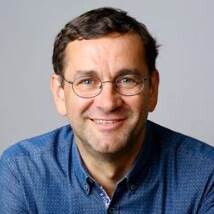 Kosmochemie/Cosmochemistry online DMG Doktorandenkurs
Kosmochemie/Cosmochemistry online DMG Doktorandenkurs
Sprache & Voraussetzungen/Language & Requirements
Der online-Kurs ist vollständig auf Deutsch und Englisch verfügbar. Voraussetzung ist mindestens MSc, in Ausnahmefällen auch BSc (bitte mich kontaktieren). Kenntnisse in Petrologie/Geochemie/Isotope sind vorteilhaft, aber nicht Voraussetzung.
Titel
Kosmochemie, Meteorite, & der Ursprung unseres Planetensystems
Kurzbeschreibung
Meteorite sind von grundlegender Bedeutung für die Geochemie, Petrologie, und ganz allgemein der Entwicklung der Erde und dafür, die Entstehung und Entwicklung unseres Planetensystems zu verstehen. So ist die Zusammensetzung der CI chondritischen Meteorite oftmals die Referenz für alle irdischen Gesteine, und das Alter des Sonnensystems wird aus meteorischen Komponenten bestimmt. In diesem Kurs geht es um die Bedeutung der Meteorite, deren chemische und isotopische Zusammensetzung, die Entstehung und Entwicklung des frühen Sonnensystems, die Chronologie der Prozesse in der protoplanetaren Scheibe, aus der sich die Asteroide und Planeten gebildet haben, dass präsolare Körner in Meteoriten aus anderen Sternen stammen, wie sich die Isotope durch Nukleosynthese gebildet haben, ein wenig grundlegende Astronomie, wofür kurzlebige und langlebige Isotopensysteme gebraucht werden, und wie diese funktionieren, welche Isotopen-Anomalien es gibt, und wozu diese verwendet werden können – um damit die verschiedenen meteoritischer Komponenten zu verstehen, und schließlich die Entstehung unseres Planetensystems rekonstruieren zu können.
Das ungefähre Programm kompakt: Bedeutung der Meteorite – Chemische & isotopische Zusammensetzung der Meteorite – Entstehung und Entwicklung des frühen Sonnensystems – Chronologie der Prozesse in der protoplanetare Scheibe – Asteroiden & Planetenbildung – präsolare Körner und Nukelosynthese – Provenance-Studien (protoplanetare Scheibe)
Was bedeutet online-Kurs?
Der Kurs wird als online Kurs angeboten. Im ersten Teil wird über einen selbst bestimmten Zeitraum von ca. 1-2 Monaten über eine umfangreich ausgestattete online Lern-Plattform grundlegendes Wissen selbst gelernt. Es bestehen vielfältige Feedback-Funktionen beim Lernen, sowie 3-4 online Treffen aller Teilnehmer während des Zeitraums. Anschließend treffen sich alle Teilnehmer*innen für 2 Tage in Frankfurt für eine gemeinsame Präsenzphase, in der das Gelernte gemeinsam vertieft und diskutiert wird (genaue Termine unten). Zum Abschluss können Teilnehmer*innen eine mündliche Prüfung ablegen, um 4 ETCS Punkte zu erwerben. Zur Teilnahme ist jegliches Endgerät mit einem Browser ausreichend.
Veranstalter
Dominik Hezel (dominik.hezel@em.uni-frankfurt.de)
Goethe-Universität Frankfurt
Campus Riedberg, Altenhöferallee 1
60438 Frankfurt am Main
Termin
Nach einem erfolgreichen Kurs 2020 ist noch unklar, ob es einen Kurs schon wieder ein 2021 geben wird oder erst wieder in 2021. Zum Stand der Dinge kann gerne jederzeit nachgefragt werden bei: dominik.hezel@em.uni-frankfurt.de
Teilnehmerzahl
15
Kursgebühr
Die Teilnahme ist kostenfrei, Anreise und Übernachtung müssen jedoch selbst getragen werden. Ein gemeinsames Abendessen ist geplant. Studentische Mitglieder der DMG erhalten in der Regel einen Zuschuss in Höhe von 50 Euro.
ECTS-Punkte
4
Cosmochemistry Online PhD-Course
Language & Requirements
This online-course is fully available in English and German. An MSc is required, a BSc might in cases be sufficient (please contact me). Knowledge in petrology/geochemistry/isotopes is of advantage but not required.
Title
Cosmochemistry, Meteorites, & the Origin of our Planetary System
Description in brief
Meteorites are of fundamental importance for geochemistry, petrology, and in general to understand the evolution of Earth and the formation and evolution of our planetary system. For example, the composition of the CI chondritic meteorites is the most commonly used reference for all terrestrial rocks. Also, the age of our Solar System is determined from a meteorite component. This course will cover the significance of meteorites, their chemical and isotopic composition, the formation and evolution of the early Solar System, the chronology of the processes in the protoplanetary disk form which asteroids and planets formed, that presolar grains in meteorites originate from other stars, how isotopes formed in nucleosynthesis, some basic astronomy, how short-lived and long-lived isotopes are used, how theses radiogenic systems work, what isotope anomalies exist and how these are used to understand the various meteorite components – to finally reconstruct the formation and evolution of our planetary system.
The rough programme in brief: Significance of Meteorites – Chemical & isotopic Composition of Meteorites – Formation and Evolution of the early Solar System – Chronology of the Processes in the Protoplanetary Disk – Asteroids & Planet Formation – presolar Grains and Nucelosynthesis – Provenance-Studies (in the Protoplanetary Disk)
What does online-course mean?
This is a two part online course, consisting of a self-learning phase and a concluding presence phase. In the first part, the participants use our dedicated learning platform, equipped with comprehensive learning tools to learn the basics of cosmochemistry over a 1-2 months period and at their own speed. This part includes various feedback-functions for learning, plus 3-4 online meetings of all participants. For the second part – the presence phase – all participants meet in Frankfurt. Here we will deepen what has been learned before and set it into the overarching context of early solar system formation and evolution. Each candidate can finish with an oral exam to get 4 ETCS Points. Any device running a browser will be sufficient to participate in the course.
Organiser
Dominik Hezel (dominik.hezel@em.uni-frankfurt.de)
Goethe-Universität Frankfurt
Campus Riedberg, Altenhöferallee 1
60438 Frankfurt am Main
Dates
After a successful course in 2020 it is not yet clear whether the course will be offered again in 2021 or 2022. Should you be interested in the current state of play, please ask and send an email to: dominik.hezel@em.uni-frankfurt.de
Number of Participants
15
Fees
Participation is free, except for travel cost, meals and accommodation. A social dinner is planned. DMG (German Mineralogical Society) student members usually receive a 50 Euro grant.
ECTS-Points
4




